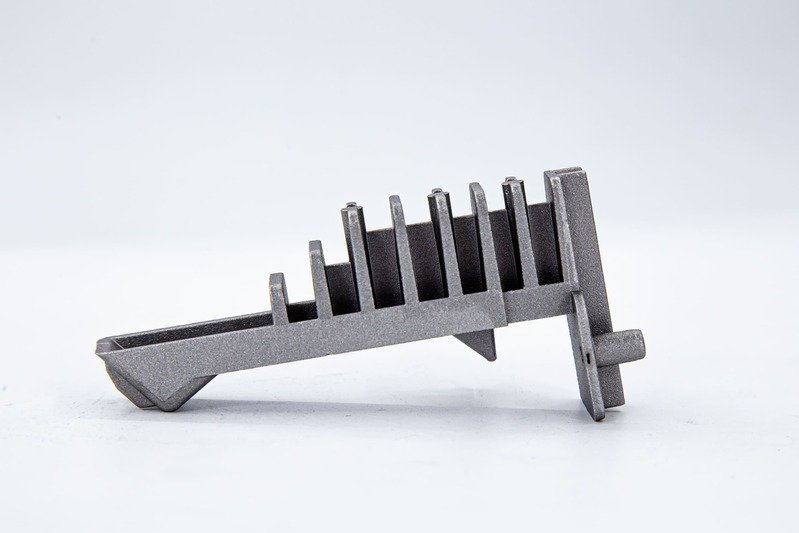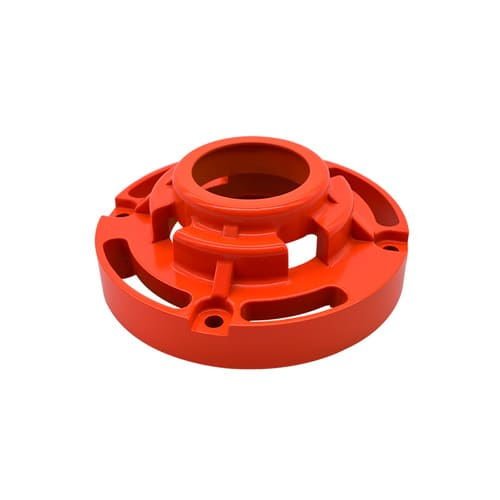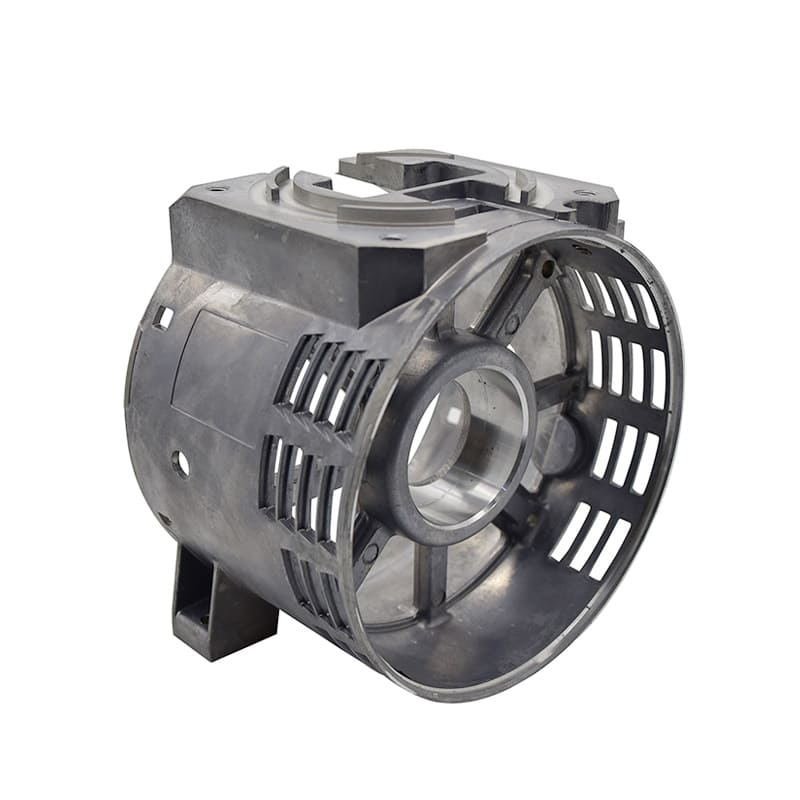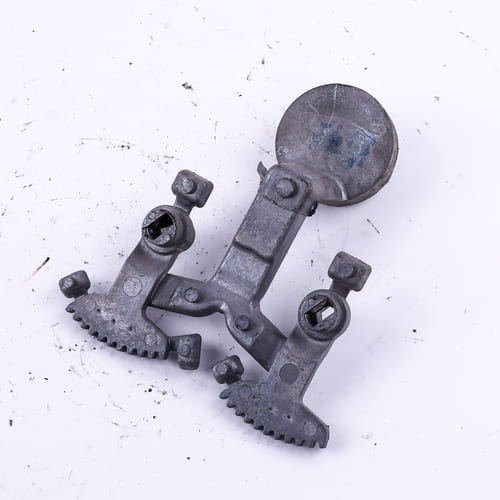Aluminum is the second most valuable metal in the world of commerce after steel. Aluminum is the third-most abundant metal in the Earth’s crust. The strength of pure aluminum is not very high. All alloys have densities between 99.65 and 99.99 percent, or about 2.7 g/mL, which is one-third of steel.
Also read: Top 15 High Pressure Die Casting Parts Suppliers In USA
Emerging Trends in Aluminum Alloy Development

1. High-performance alloys:
- Aluminum-lithium alloys: These alloys use lithium to reduce weight and improve specific strength used in aircraft fuselages and wing
- Scandium-containing alloys: Scandium offers similar weight reduction benefits as lithium while also enhancing strength and toughness.
- High-entropy alloys (HEAs): These alloys contain multiple principal elements in near-equatomic proportions, leading to unique microstructures and properties.
2. Additive manufacturing (AM):
- AM technologies like 3D printing are making manufacturing easy for complex shapes and structures with aluminum alloys.
- New AM powders and processes are being developed specifically for aluminum alloys.
3. Sustainability:
- Recycled aluminum alloys: The use of recycled aluminum is increasing due to its lower environmental impact.
- Low-carbon production: New smelting technologies are being developed to reduce the carbon footprint of aluminum production.
What Are the Aluminum Alloys?
Aluminum is a pure material. Aluminum alloys are formed by combining aluminum with other elements, typically copper, magnesium, silicon, manganese, zinc, and sometimes tin, nickel, or lithium. Generally, aluminum alloys fall into the following categories:
- Wrought Alloys
- Casting Alloys
We shall discuss these types in detail further such as heat treatable and non-heat-treatable.
What is the density of aluminum?
The density of pure aluminum is 2.70 g/cm³ or 2700 kg/m³. The density of aluminum alloys falls within the range of 2.64 g/cm³ to 2.81 g/cm³.
Currently, many different aluminum alloys are used in many different manufacturing and technology fields, such as:
- Infrastructure
- Automotive
- Aerospace
- Transportation
- Construction
According to Vadim S and Nikolai’s book on “Casting Aluminum Alloys”, shape castings account for up to 20-30% of all aluminum products produced worldwide. Many businesses, like General Motors, Ford, and many others, specialize in end products or materials other than aluminum and also produce aluminum casting.
10 Most Common Aluminum Engineering Use & Properties
| Alloy Designation | Major Alloying Elements |
| 1000 series 1060 | Pure aluminum (99.6% minimum) |
| 1100 | Pure aluminum (99% minimum) |
| 2000 series 2024 | Copper, magnesium |
| 3000 series 3003 | Manganese |
| 5000 series 5052 | Magnesium |
| 6061 t6 aluminum | Magnesium, silicon |
| 7075 aluminum | Zinc, magnesium, copper |
| 6000 series alloy 6063 aluminum | Magnesium, silicon |
| 7000 series 7050 | Zinc, magnesium |
| 5083 | Magnesium, manganese |
Types of Aluminum Series Alloys

There are three main different types of aluminum alloys:
- Wrought heat-treatable
- Wrought non-heat treatable
- Casting alloys
Wrought Aluminum Alloys: Heat Sensitivity Consideration
This group has alloys and wrought alloys with high-quality aluminum in the 1000, 3000, and 5000 series. Generally, the cold working method is used to harden these wrought, non-heat-treatable aluminum alloys.
Also Read: Best Aluminum For Die Casting
Wrought Aluminum Alloys: Heat-Treatable
Heat-treatable wrought aluminum alloys primarily comprise copper alloys, magnesium, or zinc. These types of alloys belong to the 2000, 6000, and 7000 series. These aluminum alloys can undergo precipitation hardening. Cast and wrought aluminum alloys develop a high level of strength.
Aluminum Alloy for Casting Grades
This category has heat-treatable and non-heat-treatable alloys. The most common aluminum alloys for casting are 2000, 3000, 4000, 7000, and 8000. These casting alloys have lower strength qualities than wrought heat-treatable alloys.
Aluminum Alloy 1000 Series
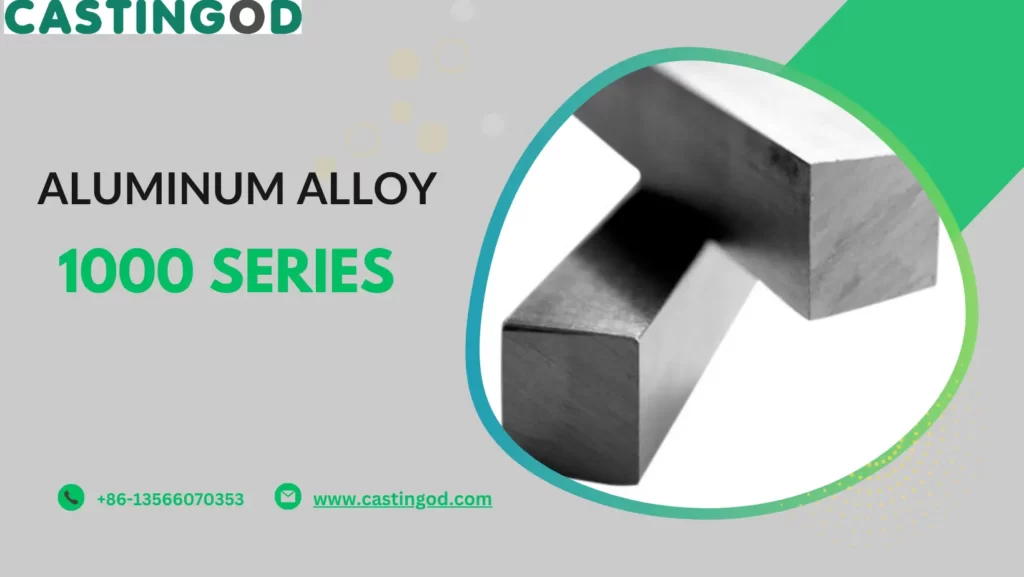
1000 series is known as non-heat treatable aluminum alloys. These alloys have a 99% aluminum content. The major alloying elements are Fe and Si. These give the alloys more strength. 1000 alloys have low tensile strength due to the higher aluminum alloy composition percentage. These alloys have poor mechanical properties.
Also Read: Die Casting Metal Comparison
Following are some basic characteristics of these alloys.
- These alloys are excellent in corrosive resistance
- Have high electrical conductivity
- Have low tensile strength (nearly 10 to 27 KSi)
- Low yield stress (only 7-11 MPa).
- Excellent formability and workability properties
- These alloys are excellent for reflective and decorative purposes.
Aluminum 1050A Alloy
Aluminum alloy chemical properties in %-
- Al-99.5,
- Fe-0.40,
- Si- 0.25,
- Rest other elements (Cu, Mn, and Mg)
Physical Properties of Aluminum Alloys 1050A
| Property | Value |
| Density | 2.71 g/cm3 |
| Melting Point | 650°C |
| Modulus of Elasticity | 71 GPa |
| Thermal Conductivity | 222 W/m. K |
| Thermal Expansion | 24×10-6 /K |
Characteristics
- Low mechanical properties
- Resistance to atmospheric corrosion
- Excellent workability and corrosive resistance
- High ductility and reflective finish
- Suitable for decorative purposes
Application of Aluminum 1050A
- Best for packaging such as foils, containers, etc.
- Used in chemical and food industry equipment
- Used as heat exchanger
Aluminum 1060 Alloy Series
Aluminum alloy composition in %-
- Al-99.6,
- Fe-0.35,
- Si- 0.25,
- Rest other elements (Cu, Mn, Mg, Cr, Zn, Ti)
Physical Properties Of 1060 Alloy
| Property | Value |
| Density | 2.71 g/cm3 |
| Melting Point | 648°C |
| Modulus of Elasticity | 70-80 GPa |
| Thermal Conductivity | 234 W/mK |
| Thermal Expansion | 23.6×10-6 /K |
Characteristics
- are slightly stronger than 1050
- Cold working characteristics are excellent
- Excellent welding characteristics
- Elastic moduli are high
- Forging can be done in the range of 950-700 F.
Application
- Good for chemical equipment
- Aluminum 1060 is mainly used for the manufacturing of railroad tank cars.
Aluminum 1200 Alloy
Aluminum alloy composition in %-
- Al≥ 99
- Fe + Si≤ 1
- Rest other elements (Cu, Mn, Zn, and Ti)
Also read: Aluminum die cast tooling
Physical Properties of 1200 Alloy
| Property | Value |
| Density | 2.70 g/cm3 |
| Melting Point | 650°C |
| Tensile Strength | 70-105 MPa |
| Thermal Conductivity | 222 W/m.K |
| Thermal Expansion | 24×10-6 /K |
Characteristics
- Have high thermal conductivity and reflectivity
- These alloys have strength slightly higher than 1050 and 1060
- Have excellent welding ability
Applications
- Used in food industries in making their equipment
- Alloy 1200 is used in construction and roofing
- Used as conductive material
- Bottle caps
Aluminum Alloy 2000 Series
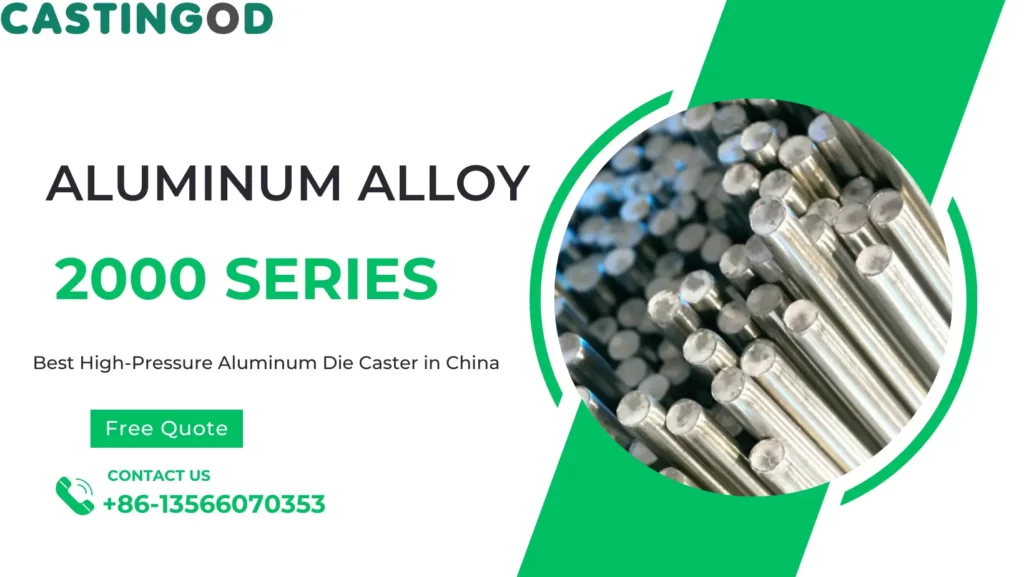
These alloys are heat-treatable. Generally, these are the alloys of aluminum and copper. With the addition of copper (0.7-6.8%), these alloys strengthened their temperature range. However, these alloys are not the best aluminum alloys for welding purposes because of stress corrosion.
2000 series have alloys like 2007, 2011, 2014, 2017A, 2024, and 2030.
Aluminum 2007 alloy
Aluminum alloy composition in %-
- Al-90-94,
- Cu-4.0,
- Pb-1.2,
- Mg-1.1,
- Mn-0.8,
- Rest other elements (Cr, Ti, and Sn)
Physical Properties Of 2007 Alloy
| Property | Value |
| Density | 2.82 g/cm3 |
| Melting Point | 500°C |
| Modulus of Elasticity | 73-74 GPa |
| Thermal Conductivity | 130-160 W/m.K |
| Thermal Expansion | 23×10-6/K |
Characteristics
- The machining properties of these alloys are excellent
- Excellent when cutting speed is high
- These alloys have high strength
- These alloys have poor resistance to corrosion when exposed to the atmosphere
Applications
- Good in various machinery products
- Used for screw products such as screws, bolts, nuts, etc.
Aluminum 2011 Alloy
Aluminum alloy composition in %-
- Cu 5.0-6.0
- Fe-0.7
- Si-0.4
- Pb 0.2-0.6
- Bi 0.2-0.6
- Zn-0.3
- others-0.15
Physical Properties Of 2011 Alloy
| Property | Value |
| Density | 2.82 g/cm3 |
| Melting Point | 535°C |
| Modulus of Elasticity | 71 Gpa |
| Thermal Conductivity | 138-140 W/m.K |
| Tensile Strength | 365-395 MPa |
Characteristics
- These alloys have excellent machining properties
- These alloys have high strength but are lower than 2007 and 2030
- Fatigue strength of these alloys is high
- Their corrosive resistance is relatively poor for outside application
- These alloys are poor in arc and gas welding
Applications
- Good for lathe products
- For high-strength applications such as the automotive industry
Aluminum 2014 Alloy Series
Aluminum alloy composition in %-
- Al-93.5
- Cu-4.4
- Si-0.8
- Mg-0.5
- Mn-0.6
- Cr ≤ 0.1
Physical Properties of 2014 Alloy.
| Property | Value |
| Density | 2.8 g/cm3 |
| Melting Point | 510°C |
| Modulus of Elasticity | 70-80 GPa |
| Thermal Conductivity | 192 W/m.K |
| Thermal Expansion | 23×10-6/K |
Characteristics
- Strength slightly higher than 2011
- These alloys are good for arc welding
- These alloys have excellent Machinability under annealed condition
- These alloys are used for forging between 399-455 C
Applications
- To manufacture aircraft structures and truck frames
- Military vehicles
- Screw products such as screws, bolts, nuts, etc.
- Manufacturing of vehicles
Aluminum alloy 2017A
Aluminum alloy composition in %-
- Al 91.5-95.5
- Cu 3.5-4.5
- Fe-0.7 max
- Mn 0.4-1
- Mg 0.4-0.8
- Zn-0.25 max
- Tin-0.15
- Rest of elements-0.2
Physical Properties Of 2017 Alloy
| Property | Value |
| Density | 2.79 g/cm3 |
| Melting Point | 513-645°C |
| Modulus of Elasticity | 72 GPa |
| Tensile Strength | 179 MPa |
| Thermal Conductivity | 193 W/m.K |
Characteristics
- These alloys are good for resistance and inert gas welding
- Formability under annealed condition
- These alloys have excellent mechanical and fatigue strength
- These alloys have poor resistance to corrosion
Applications
- Rivets and Fasteners Aircraft components
- Manufacturing of coat hangers
- Various military equipment
Aluminum Alloy 2024
Aluminum alloy composition in %-
- Cu 3.8-4.9
- Mg 1.2-1.8
- Si-0.5
- Fe-0.5
- Mn 0.3-0.9
- Zn-0.25
- Ti-0.15
- Cr0.10
Physical Properties Of 2024 Alloy
| Property | Value |
| Density | 2.78 g/cm3 |
| Melting Point | 500°C |
| Tensile Strength | 469 MPa |
| Modulus of Elasticity | 73 Gpa |
| Thermal Conductivity | 121 W/m.K |
Characteristics
- Good for forming and machining
- High fatigue strength
- Suitable for friction welding only
Applications
- These alloys are mainly used for aircraft structures, especially wings
- Truck wheels and rivets
- Military equipment
Aluminum Alloy 2030
Aluminum alloy composition in %-
- Cu 3.3-4.5
- Mg 0.5-1.3
- Mn 0.2-1.0
- Pb 0.8-1.5
- Si-0.8
- Fe-0.7
- Zn-0.5
- Ti0.2
- Cr-0.10
Physical and Chemical Properties of 2030 Alloy
| Property | Value |
| Density | 2.82 g/cm3 |
| Melting Point | 505°C |
| Modulus of Elasticity | 70-75 Gpa |
| Thermal Conductivity | 130-160 W/m.K |
| Thermal Expansion | 22.5×10-6/K |
Characteristics
- These alloys have an attractive appearance and high reflectivity
- Good welding ability
- Good resistance to corrosion when exposed to the atmosphere
- Excellent thermal and electrical conductivity
Application
- These alloys are used for packaging such as foils and containers
- These alloys are used for kitchenware and food industry equipment
- Light reflectors and piping
Series Aluminum Alloy 3000
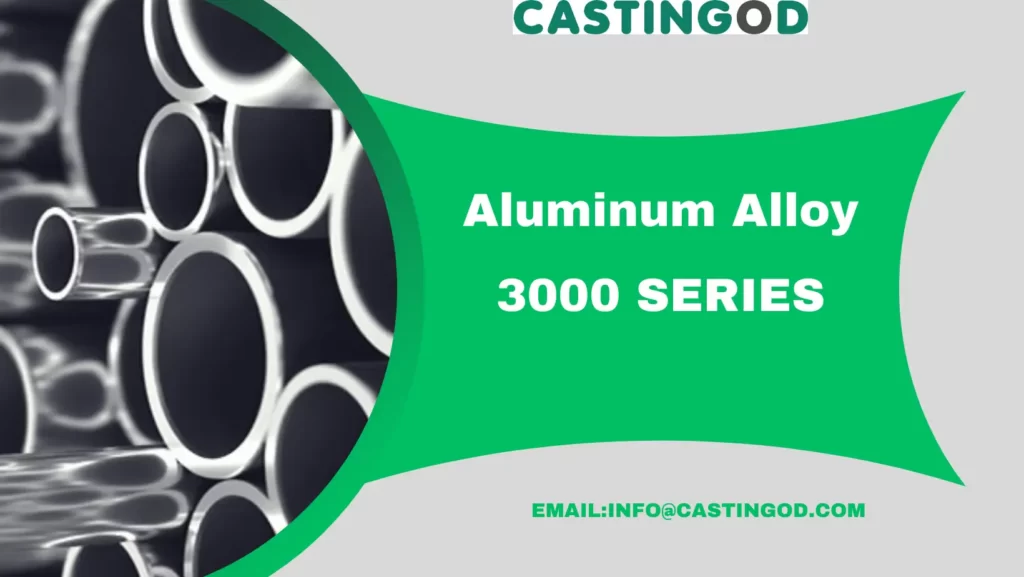
The main alloying element in the 3000 series is manganese. Manganese improves the formability and ductility of the alloy. These alloys have different mechanical characteristics. These alloys have an average strength.
3000 series alloys cannot be heat treated. They have lower tensile strength than the 2000 series. These are the strongest aluminum alloys for roll forming, drawing, and pressing due to their exceptional formability. These alloys have a low thermal conductivity. They are excellent for power plants and the automotive sector.
The 3000 series has alloys like 3003 and 3004.
Aluminum Alloy 3003
Aluminum alloy composition in %-
- Al-98.6,
- Mn-1.2,
- Cu-0.12
Physical Properties Of 3003 Alloy
| Property | Value |
| Density | 2.73 g/cm3 |
| Melting Point | 644°C |
| Modulus of Elasticity | 70-80 Gpa |
| Thermal Conductivity | 162 W/m.K |
| Thermal Expansion | 23.2×10-6/K |
Characteristics
- Aluminum 3003 has good machinability
- Superior mechanical properties as compared to 1000 alloys
- 3003 can only be hardened by cold working
- Obtained using conventional hot and cold working methods
- Hot worked between 258 and 515 oC.
- Forging can be done between 258 and 515 oC.
Applications
- Manufacturing of utensils and pressure vessels
- Employed as heat exchangers
- Used in duct wire and chemical equipment
- Used as radiators in vehicles
- Used for sheet metal work
- Find applications in gasoline and storage tanks
Aluminum Alloy 3004
Aluminum alloy composition in %-
- Al-97.8
- Mn-1.2
- Mg-1
Physical Properties Of 3004 Alloy
| Property | Value |
| Density | 2.6-2.8 g/cm3 |
| Melting Point | 633°C |
| Modulus of Elasticity | 70-80 Gpa |
| Tensile Strength | 215 MPa |
| Thermal Conductivity | 162 W/m.K |
Characteristics
- Strength and formability can be enhanced using strain-hardening
- 3004 alloys can be welded using TIG and MIG welding
- Can be hardened by cold working
- Can be hot worked between 260 to 485oC
- Good corrosive resistance
- Forged between 370 to 510oC
Applications
- Used in aerospace
- Sheet metal work
- Used for the manufacturing of storage tanks
- Used in packaging
Aluminum Alloy 4000 Series
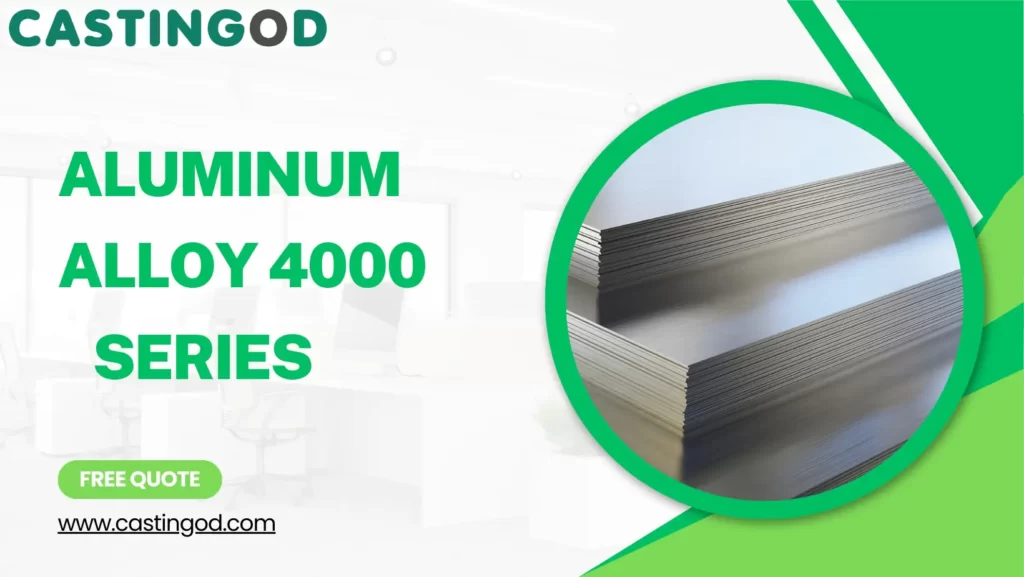
Aluminum 4000 alloys have improved mechanical properties due to heat. The main element in the aluminum 4000 series is silicon. These aluminum alloys have less flexibility by nature. These alloys have vast casting applications because they have low ductility and good stiffness. These alloys have tensile strengths ranging from 25 to 55 KSi.
Silicon in these alloys can promote fluidity and decrease ductility. There are many other elements present in these alloys, like nickel, calcium, and phosphorus. Phosphorous can enhance machinability, and calcium with silicon can enhance conductivity.
Nickel can improve alloy’s strength and hardness. These alloys are also used in automotive welding as filler alloys.
The aluminum 4000 series has common alloys, like 4032 and 4043.
Aluminum Alloy 4032
Aluminum alloy composition in %-
- Al-85,
- Si-12.2,
- Mg-1.0,
- Cu-0.9,
- Ni-0.9
Physical Properties Of 4032 Alloy
| Property | Value |
| Density | 2.69 g/cm3 |
| Tensile Strength | 380 MPa |
| Elastic Modulus | 70-80 GPa |
| Thermal Expansion | 19.4×10-6/K |
Characteristics
- Excellent drilling characteristics
- Machinability is good
- Good for inert gas arc welding
Applications
- Used for manufacturing pistons
- Bearing and Hydraulic application
- Transmission valves
Aluminum Alloy 4043
Aluminum alloy composition in %-
- Al-94.8
- Si-5.20
Physical Properties Of 4043 Alloy
| Property | Value |
| Density | 2.6-2.9 g/cm3 |
| Tensile Strength | 150 MPa |
| Modulus of Elasticity | 70-80 GPa |
| Thermal Conductivity | 163 W/m.K |
| Thermal Expansion | 22.1×10-6/K |
Characteristics
- Good flow characteristics.
- Most widely used as filler alloy.
- Good corrosive resistance.
- Good for brazing and fusion welding.
Applications
- Used in refrigerator cooling circulation systems.
- Used as weld wires.
- For the manufacturing of truck trailers and bicycles.
Aluminum 5000 Series

The aluminum 5000 series has Al-Mg alloys. They have excellent corrosion resistance, even in salt water. These alloys show great toughness even at cryogenic temperatures close to absolute zero. 5000 alloys have vast applications in construction, transportation, cryogenic tankage and systems, and marine sectors.
The aluminum 5000 series has common alloys, like 5052.
Aluminum Alloy 5052
Aluminum alloy composition in %-
- Al 95.7 – 97.7
- Cr 0.15 – 0.35
- Mg 2.2 – 2.8
Physical Properties of Alloys 5052
| Property | Value |
| Density | 2.68 g/cc |
| Melting Point | 607.2 – 649 °C |
| Tensile Strength | 193 MPa |
| Modulus of Elasticity | 70.3 GPa |
| Thermal Conductivity | 138 W/m-K |
Characteristics
- Decorative Finish
- Anti-Static
- Hard Wearing
- Low Maintenance
- Non-Slip
- Light-weight
- Corrosion Resistant
Applications
- Treadplate
- Road Signs
- Boiler making
- Architectural Paneling
- Containers
- Chemical Industry
Aluminum 8000 Alloy Series
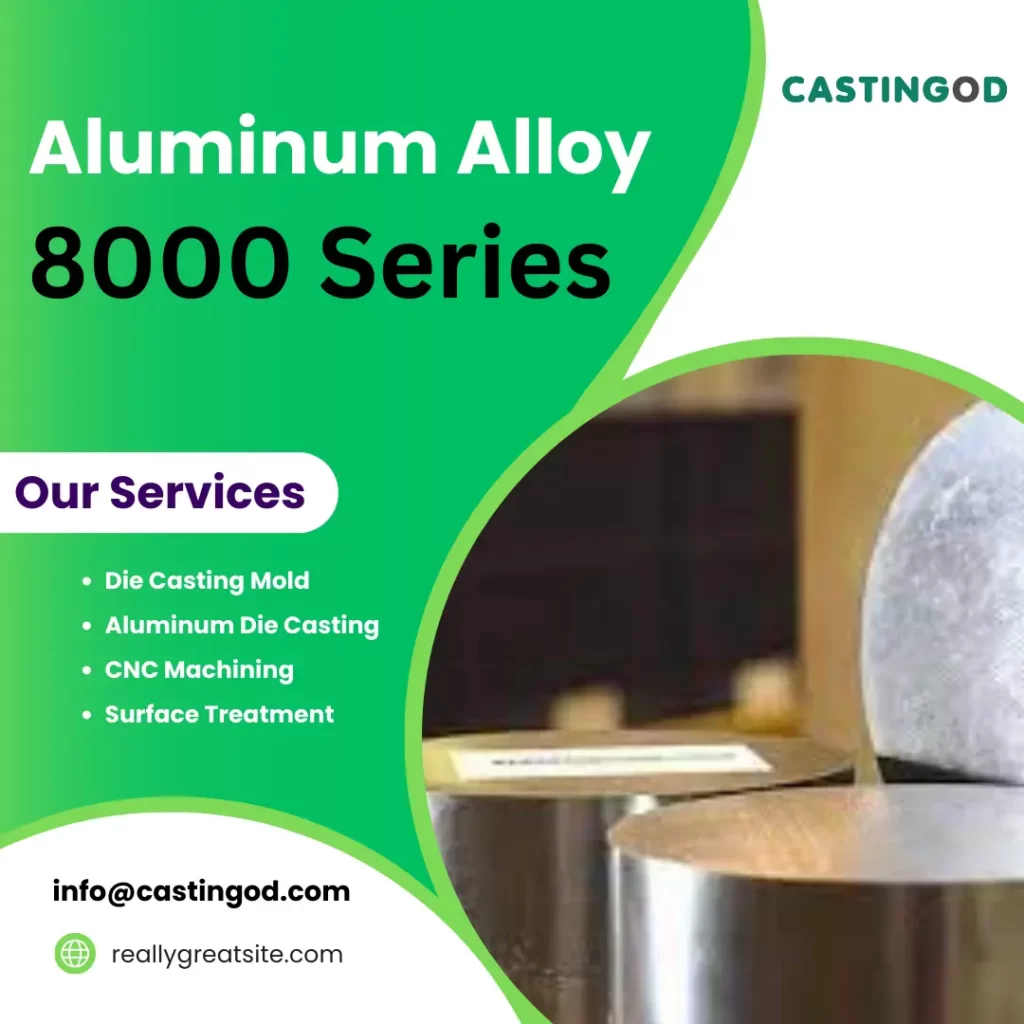
The aluminum 8000 series are newly created aluminum casting alloys. These alloys contain Li and Sn. 8000 series alloys are designed to fulfill different purposes.
The amount of copper content in the aluminum 8000 series is between 1.2% and 2%, and the magnesium content varies from 2% to 10%. These materials increase the strength and toughness of this Aluminum 8000 Series. These materials also help the alloys maintain their best mechanical qualities under hot conditions.
Some of the common alloys in the 8000 series are: 8011, 8021, 8079, and 8006
Aluminum Alloy 8011
Aluminum alloy composition in %-
- Al: – 97.3 – 98.9
- Fe: – 0.60 – 1
- Si: – 0.50 – 0.90
- Mn: -≤ 0.20
Physical Properties of Alloy 8011
| Property | Value |
| Density | 2.71 g/cm³ |
| Melting Point | 650°C |
| Tensile Strength | 100 to 180 MPa |
| Modulus of Elasticity | 69 GPa |
| Thermal Conductivity | 237 W/mk |
Characteristics
- High thermal conductivity
- Low weight
- Extremely resistant to deformation in the soft state
- Low density
- Non-toxic content
- Corrosion-resistant
Applications
- Sealing packing of cosmetic bottles,
- Air conditioning aluminum foil
- Beverage bottles
Conclusions

Which is the best aluminum alloy in die casting? At Castingod, being the number one high pressure aluminum die casting manufacturer for die casting parts, we can make custom parts with aluminum in bulk.
Faqs
Is aluminum an alloy?
No, aluminum is a pure element on the periodic table with the symbol Al. Most available aluminum products are aluminum alloys. By combining aluminum with copper, magnesium, or silicon, manufacturers can customize its properties.
How to get aluminum alloy in astroneer?
In Astroneer, aluminum alloy is a composite resource. Here’s how to get it:
Materials needed:
- 1 Aluminum:
- Obtained by smelting Laterite.
- 1 Copper:
- Mine Malachite and smelt it to get copper.
How to make aluminum alloy in astroneer?
Steps:
- Build a Chemistry Lab: This is where you’ll craft the aluminum alloy.
- Place the required materials in the Chemistry Lab: You need one aluminum and one copper in the input slots.
- Craft the aluminum alloy: Interact with the Chemistry Lab to start the crafting process.
Is aluminum alloy strong?
The strength of an aluminum alloy depends on the following factors:
- Alloy type such as 2024, 7075, and 6061 are considered one of the strongest aluminum alloys.
- Heat treatment
- Manufacturing process
Comparison of tensile strength for different materials:
- Pure aluminum: 8-12 ksi (55-83 MPa)
- Aluminum alloy 6061: 35-45 ksi (241-310 MPa)
- Aluminum alloy 7075: 50-70 ksi (345-483 MPa)
- Low-carbon steel: 25-50 ksi (172-345 MPa)

